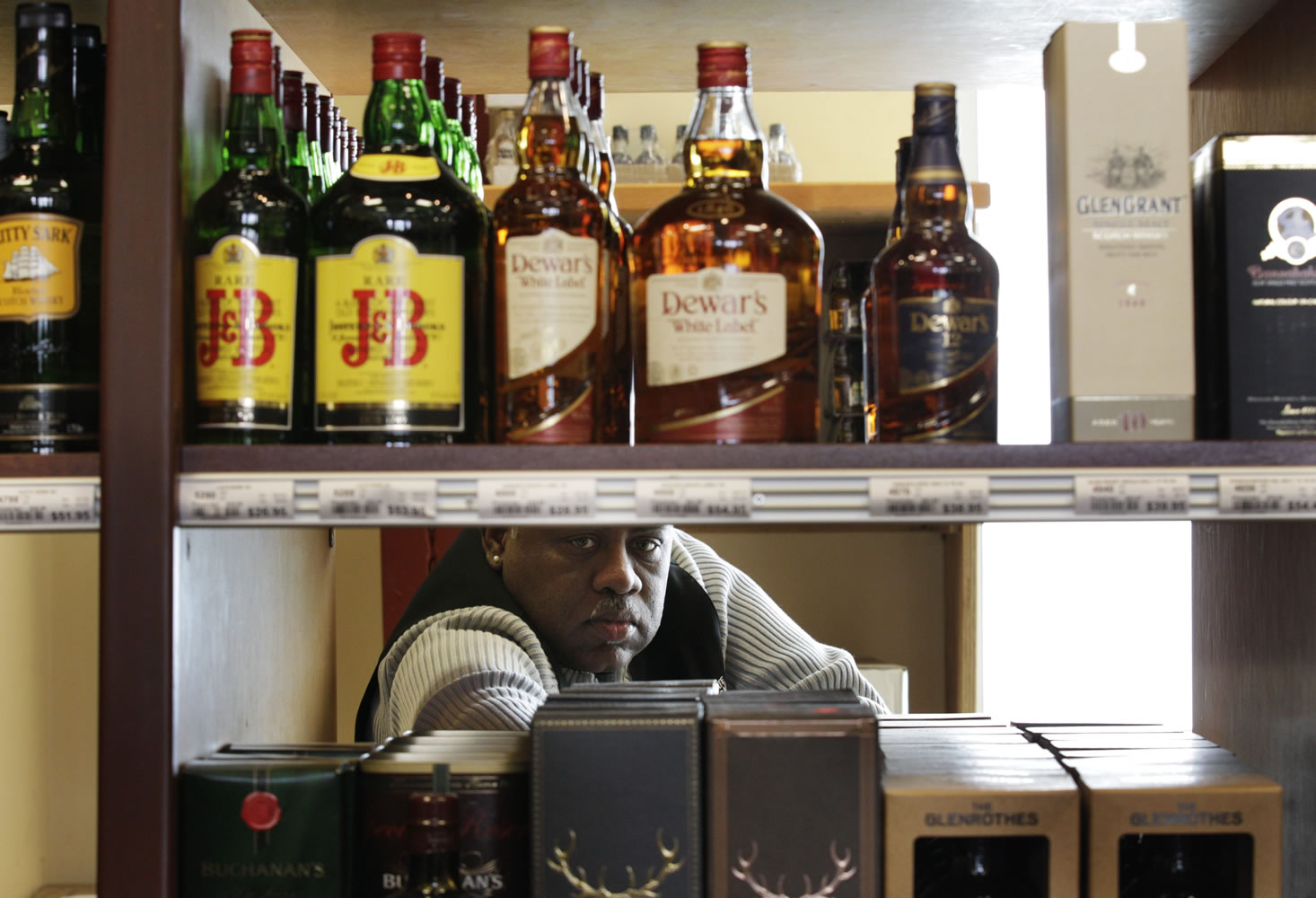Clark County has nine state-run liquor stores, including five Vancouver stores and locations in Battle Ground, Hazel Dell, Orchards and Ridgefield. Locate stores through the Washington State Liquor Control Board. For auction and bidding updates, click here.
YAKIMA — Washington state opened a public auction online Thursday of its state-run liquor stores, beginning the process of privatizing a booze industry the state has tightly controlled since the end of Prohibition.
Within hours, more than 30 bidders had entered the fray. Nearly a dozen offered to buy rights to all of the stores, though most bid on individual store locations.
The minimum bid: $1,000.
Venturing into store ownership isn’t without its risks, given the current upheaval in the state’s liquor industry. Big-box stores will be entering the market for the first time under the voter-approved initiative kicking the state out of the business, and two lawsuits seeking to overturn the measure could derail efforts to implement it June 1.
Successful bidders also still must negotiate a lease the state doesn’t own the properties the stores are on apply and qualify for a retail liquor license and stock their stores.
But Washington officials said state stores that carry more than 1,400 products, including locally produced wine and spirits, could be a golden chance for entrepreneurs looking to serve a niche market.
The state’s spirits industry is growing, with more than 20 distillers producing gin, whiskey and vodkas distilled from Washington wheat or potatoes. Washington wineries now top 700.
State stores also carry leading brands of everything from cognac to rum.
“Our customers here in the state of Washington have grown to experience a very diverse portfolio of spirit products, and that portfolio won’t be available by the general big-box stores,” said Pat McLaughlin, director of business enterprise for the Washington Liquor Control Board. “This is a unique opportunity.”
Nearly 20 states control the retail or wholesale liquor business. Some, such as Iowa and West Virginia, have relinquished partial control in recent years, but Washington would be the first in that group to abandon the liquor business entirely.
Results of Initiative 1183
Voters, anticipating lower prices with private industry, required the state to dismantle its liquor business when they approved Initiative 1183 last fall in what was the costliest initiative campaign in state history. Backed by membership warehouse giant Costco, the measure allows stores larger than 10,000 square feet to sell liquor, and smaller stores could only be allowed if there are no other outlets in a trade area.
The exception to that rule is Washington’s 167 state-run and 163 contract liquor stores. Contract stores, which are run by private individuals, will be allowed to continue to operate. The state-run stores are the subject of the auction, with successful bidders winning the exclusive right for a liquor store at that location. In addition, the license would be exempt from approval requirements of local officials, as is usually the case.
The auction ends April 19.
Successful bidders also will have the opportunity to purchase the state’s leftover stock.
Grocery stores that sell liquor typically sell only about 300 products, McLaughlin said, and those tend to be the best-selling brands offered at lower prices. To compete, smaller stores will have to offer unique products.



